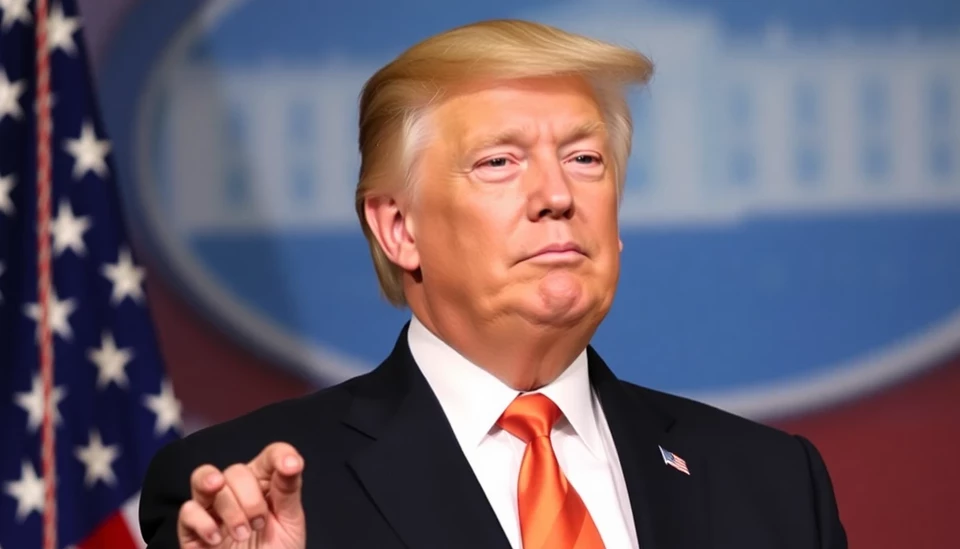
In a pivotal move reflecting ongoing tensions between the U.S. and China, former President Donald Trump has instructed the Committee on Foreign Investment in the United States (CFIUS) to implement stricter regulations on Chinese investments in key industries. This directive signals a broader strategy to safeguard American interests and national security, bolstering the administration’s efforts against foreign influences perceived as threats.
The directive comes in the wake of escalating geopolitical tensions and growing concerns among U.S. policymakers regarding China’s expanding economic influence. The CFIUS, which evaluates potential foreign investments for national security risks, will now have enhanced authority to scrutinize transactions involving Chinese firms in critical areas such as technology and infrastructure. This development aims to mitigate risks associated with technology transfer and data security vulnerabilities that could arise from Chinese capital flowing into sensitive sectors.
Former President Trump’s announcement underscores a significant shift in the U.S. government’s approach toward foreign investments, particularly from China, which has been a focal point in Washington’s efforts to counter Chinese aggression and maintain competitive advantage. The directive elevates previous measures and reflects a growing bipartisan consensus on the need to restrict foreign investments that could jeopardize national security.
Additionally, this policy could have broader implications for global trade dynamics, signaling to investors that the U.S. is prepared to take a hardline stance on foreign investments. The move may deter prospective Chinese investors from pursuing business in the United States, simultaneously sparking concerns about the potential for retaliatory measures from Beijing.
Experts argue that while the intent behind this directive may be to protect American technology and industries, it also raises significant questions regarding the future of U.S.-China economic relations. Concerns over reduced collaboration and increased barriers to investment could impact innovation, economic growth, and the overall business climate in the U.S.
This latest decision by Trump adds another layer to the complex tapestry of U.S.-China relations, highlighting the administration's focus on protecting domestic interests amidst an increasingly competitive global landscape. Observers will be closely monitoring how this directive unfolds and its long-term implications for investment in the United States.
As debates continue around the balance between national security and economic openness, this measure reflects a broader narrative of protectionism that has gained traction among policymakers in recent years. The long-term effects on the business ecosystem and international partnerships remain to be seen, fostering discussions on the importance of strategic investments that align with American values and security priorities.
The implications of this new directive will undoubtedly reverberate across both financial and political arenas, potentially setting the stage for further shifts in how foreign investments are handled in the face of national security considerations.
#Trump #CFIUS #ChineseInvestments #NationalSecurity #USChinaRelations #ForeignInvestment #EconomicTensions #GlobalTrade
Author: Daniel Foster




